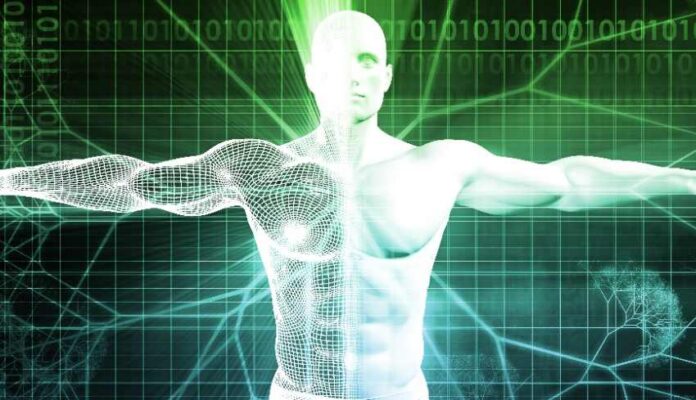Sometimes you find things out that are fascinating but utterly frightening and repugnant.
Advances in the field of epigenetics have focused on the role of inter-cellular electrical activity in developmental morphology (shape or structure) of organisms.
Epigenetics is the study of factors outside of the genome which mediate genetic expression and the development of organisms, but don’t actually alter the genome. It is the study of how our behaviours and environment can cause changes that affect the way our genes work.
Michael Levin is a professor of biology at Tufts University where he is head of the Levin Laboratory. The Levin lab integrates approaches from developmental biology, computer science, and cognitive science to investigate the emergence of organic form and function. Using biophysical and computational modelling approaches, Levin’s team seeks to understand the collective intelligence of cells, as they navigate physiological, transcriptional, morphogenetic, and behavioural spaces.
Levin’s work reveals that DNA isn’t the only builder in the biological world— there’s also a mysterious bioelectric layer directing cells to work together to grow organs, systems and bodies. So far it sounds like a very interesting field, until you find out what this actually means.
You can watch Professor Levin explaining his work on a TED talk here in which he shares disturbing footage of two-headed worms he has created. He also introduces us to xenobots — the world’s first miniature living robots created in his lab by cracking the electrical code of cells. In the TED talk, Levin discusses what this discovery may mean for the future of medicine, the environment, and even life itself. In other words, he is playing God with enthusiasm.
In case any of us are worried by this, Prof. Levin explains practical applications of his research involve the repair of birth defects, regenerative medicine, cancer reprogramming, and synthetic bioengineering. None of these have actually happened yet as a result of his work; in typical biotechnology style, they are wild promises designed to keep the research grants flowing.
So How Do You Make Two Headed Worms?
Cells communicate with each other and coordinate their activities through electrical signals. Levin has figured out that it is the electrical components of cells—miniature transistors—that contain the functional memory of how to put together the building blocks of life generated by DNA. By stimulating the cellular transistors of a growing organism you can create novel electrical gradients in the whole network of cells that stimulate particular organs and organ systems to appear in unexpected places. Levin shows pictures of a tadpole that has been programmed to develop a functioning eye in its gut for example.
Similarly, in flatworms, very simple organisms, the electrical gradient that determines which end of the worm will have a head can be altered so that a head and brain is formed at both ends of the worm (you can even make a worm that is alive but has no head). This is achieved not by applying an external electrical field but by turning on and off the little cellular transistors, which are ion channel proteins made by DNA that form the electrical gradients to program the natural course of development. The reprogrammed gradients redesign the organism.
Levin appears enthused by this result and comments that the two headed worms appear very happy (??) except for the fact that they have difficulty feeding (????). In the video, you can watch the worms threshing about. I imagined the two heads arguing with themselves about what to eat, rather like the three headed giant in Monty Python and the Holy Grail who couldn’t decide what to do with King Arthur, who had long since taken the opportunity to escape.
Another disturbing aspect of this experiment is the result that future generations of worms also have two heads, even though their genomes remain unedited. In other words, cellular memory of natural shapes and configurations of organisms is retained in the intercellular electrical communication network. In effect, like a computer, organisms can be electrically reprogrammed to look and act differently, even if this were to create an evolutionary disadvantage—a backward evolutionary step.
This sort of reprogramming is very complex. It requires a whole team of highly paid biotechnologists to alter even the simplest of organisms successfully but undoing it is equally complex once achieved. Levin proposes that, eventually, scientists may be able to reprogram organisms to produce replacement parts for sick and aged humans. A giant step of his imagination whose safety implications remained undiscussed. The TED talk leaves you with the comforting message that all is well and wisely put and about to get even better—actually a nightmarish fantasy when you consider the risks.
So How Close Are Reprogrammed Humans?
Not close at all or even safely possible, they only exist on Netflix, but consider the implications of Levin’s research findings. Electrical fields determine human morphology, shape, and appearance of organs. We are constantly being exposed to increasingly complex external electromagnetic fields (EMFs) using a greater variety of frequencies and intensities. Levin’s work shows that the idea that these will have no health implications is frankly a head-in-the-sand assessment.
We already know that external electrical fields have implications for human health because weapons have been designed using high intensity EMF fields. In the current climate of ethical standards, it is only a matter of time before someone begins to explore the possibility of redesigning, reprogramming, and controlling people inspired by Levin’s work. Is such research already under way? Due to scientific and military secrecy, we have no way of knowing.
Nature is Intelligent
Another feature of Levin’s work is the construction of living nanoscale organisms known as xenobots which he shows swimming down tubular mazes and making decisions about where to go next. Levin describes them as intelligent. I would rather suggest that no one has any idea where this leads to or whether the outcome will be intelligent or simply mad. I’m voting for mad.
Natural systems are highly coordinated within a network of universal laws which optimise efficiency. Physical laws all conform to a mathematical type known as ‘least action’—they are not only efficient but as efficient as possible. Biological systems are also optimised according to an infinity of factors geared to survival and evolution. The computing power that nature brings to bear is far far beyond even the largest supercomputers.
What I found interesting in this video is the clear evidence that nature’s intelligence is widely distributed and highly abstract. The TED talk included pictures of electrical activity in the gaps between cells coordinating organic development. When we are looking for the source of intelligence, we are not looking for one point or structure in the brain or even the genome; intelligence is everywhere, even in the gaps.
When talking about intelligence, also refer to consciousness, in many ways they are synonymous. Genomes provide intelligent structure, bioelectric systems determine the flow and expression of this genetic intelligence, but intelligence in and of itself resides in the abstract field of consciousness. Edit DNA or reprogram cellular electrical systems, and you can permanently maim the expression of consciousness in human life.
Guy Hatchard, Ph.D., was formerly a senior manager at Genetic ID, a food testing and certification company (now known as FoodChain ID).
Guy is the author of Your DNA Diet: Leveraging the Power of Consciousness To Heal Ourselves and Our World. An Ayurvedic Blueprint For Health and Wellness.




